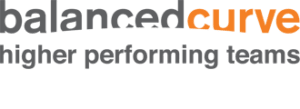Effective Communication is Critical for High Performance
I recently spent a “Development Day” with a highly engaged group of Board Directors who were all committed to improving their performance as a team. Our focus for the day was on how the Directors could become more effective communicators.
Research makes it clear that effective communication is critical for high performance, so we drew on the work of William Isaacs and went deep into the concept of Dialogue. Isaacs suggests that when we engage in dialogue, we need to come prepared to do two things:
- Listen without prejudice or preconception to what others are saying, putting aside our fears, convictions and deeply held beliefs. We seek to (deeply) understand – “listening without an agenda” and
- Say what needs to be said – respectfully.
We spent time playing with the concepts of effective listening, asking questions, sharing voice and providing feedback (both affirmative and corrective).
At the end of the day, the Chairman said “that was a great day. It would be helpful if you could come up with a “Cheat Sheet” we can all use to keep the momentum going”.
I thought I’d share a version of what I produced as you might find it useful.
Being an Effective Communicator
- Be conscious of how you are listening.Are you really listening to understand intentions and meaning?
- Suspend your Noble Certainties.Ask: what beliefs are getting in the way of me “listening without an agenda”?
- Be curious.Ask questions to gain clarity and understanding when you need to.
- Share your voice.Say what needs to be said. Respectfully express your thoughts, emotions, concerns and wants.
- Provide affirmative feedback at the end of the meeting.(Situation, Behaviour, Impact)
- Provide corrective feedback (respectfully) at the end of the meeting.(Situation, Behaviour, Impact)
- Receive affirmative feedback with gratitude.
- Receive corrective feedback with curiosity.Assume good intent, explore and reflect on what you might change.
Balanced Curve creates high performing teams and leaders. Feel free to contact us if you’d like improve the way your Team or Board are communicating.

